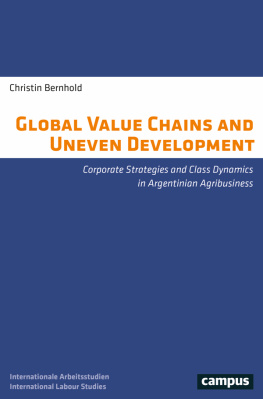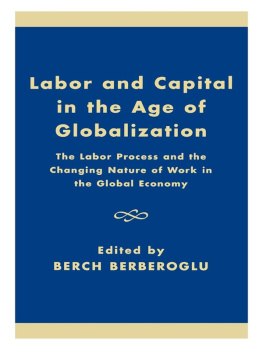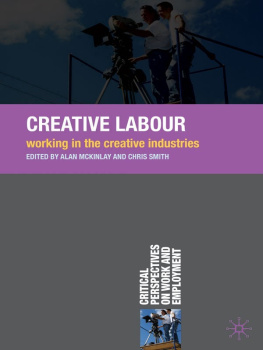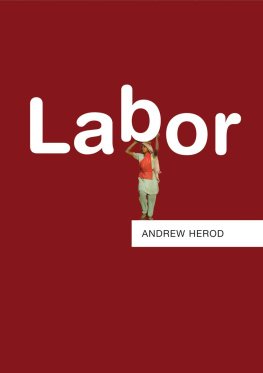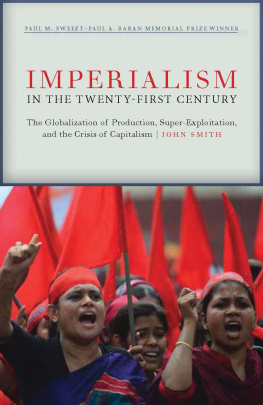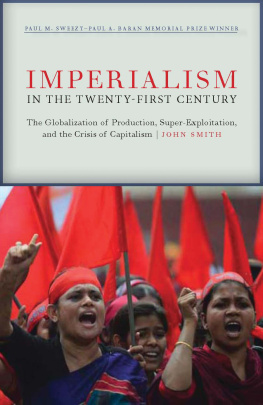Established in 2014, this award honors the contributions of the founders of the Monthly Review tradition: Paul M. Sweezy, Paul A. Baran, and Harry Magdoff. It supports the publication in English of distinguished monographs focused on the political economy of imperialism. It also applies to writings previously unpublished in English, and includes translations of new work first published in languages other than English. Please visit monthlyreview.org for complete details of the award.
PRAISE FOR VALUE CHAINS
Demonstrates how global value chains are based upon, and deepen, the exploitation of labor by capital and the geographical transfer of value from global South to global North. Suwandi illuminates how lead firms use mechanisms of value chain governance to enhance the control of geographically distant labour. This work stands in, and contributes to, the monopoly capital tradition of Magdoff, Sweezy, and Foster. An important and valuable contribution to emancipatory social science.
BENJAMIN SELWYN , Professor of International Development, Department of International Relations, University of Sussex, UK; author, The Struggle for Developmen t
Uses the concept of labor-value chains and thoughtful empirical work to reveal the ways in which multinational corporations extract surplus from the global South at worker expense. In contrast to mainstream celebrations of capitalist globalization, Value Chains leaves no doubt that globalized production is best understood as a new form of imperialism.
MARTIN HART-LANDSBERG, Professor Emeritus of Economics, Lewis and Clark College; author, Capitalist Globalization: Consequences, Resistance, and Alternatives
This is a marvelous, highly accessible book. It zeroes in on global value chains, the most important transformation of the neoliberal era, and weaves excellent theoretical insights and empirical research into a notable contribution to literature on global political economy and Marxist theories of imperialism. JOHN SMITH , author, Imperialism in the Twenty-First Century
Value Chains
The New Economic Imperialism
INTAN SUWANDI
Copyright 2019 by Intan Suwandi
All Rights Reserved
Library of Congress Cataloging-in-Publication Data available from the publisher
ISBN paper: 978-158367-781-0
ISBN cloth: 978-1-58367-782-7
Typeset in Minion Pro and Brown
MONTHLY REVIEW PRESS, NEW YORK
monthlyreview.org
Contents
To Keagan Arkatedja,
my fiery Red
Preface
AS A CHILD LIVING IN JAKARTA , Indonesia, in the late 1980s, I was familiar with the blatant inequalities that characterized the city. Mansions built right next to the slums were something familiar, although I lived in neither. The presence of poverty was everywhere. I remember vividly seeing an old man ridden with leprosy pulling a cart full of blocks of ice, every single morning on my way to school. Or a classmate, sitting right there next to me, wearing socks that were full of holes and a uniform with faded colors because it was really old. These experiences were enough to evoke questions about wealth and poverty early in my life. Why are there the rich and the very poor in this country?
WINNER OF THE PAUL A. BARAN PAUL M. SWEEZY MEMORIAL AWARD
If I could time-travel to Jakarta, back to the years when I was in middle school, I might have to tell my younger self some depressing answers to her question about why her country belongs to the third world. But I would also tell her that people in many places around the world and throughout the years fight back continuously, persistently, and vigorously.
In the world I live in today, the fight goes on, and I hope that this book will contribute to that fight.
Value Chains: The New Economic Imperialism is a product of many years of research and learning that would not have happened without the support of many individuals. First and foremost, I thank my mentor, John Bellamy Foster, from whom I have learned so much, within and outside academia. My interest in Marxist political economy started a long time ago, but it was under his mentorship that this interest could manifest itself, first in a meaningful learning experience at the University of Oregon and, later, in my writing. From him I learned perseverance in pursuing knowledge, and he always encouraged me to do more than I thought I could. This book has gained greatly from his guidance. It is a project that would not have manifested without his tremendous support.
I also thank two other mentors during my years in the Sociology Department at the University of Oregon: Richard York and Val Burris. Richard has supported my research in many ways since the beginning, and his pedagogical excellence will forever be an inspiration. Val s extensive knowledge of theories and methods has been very important to the development of my research. Their encouragement and their feedback for my works are invaluable.
I thank R. Jamil Jonna, who, along with John Bellamy Foster, co-authored our paper that is adapted for in this book. Jamil has made our goal of providing an empirical groundwork for this theory possible. I also thank the individuals whose names I can t mention here who helped me during my fieldwork in Indonesia. Without them, the fieldwork would not have succeeded.
The study was supported in part by the Southeast Asian Studies Award and the Wasby-Johnson Sociology Dissertation Research Award. I thank the generous sponsors who have provided such funding.
I thank my fellow survivors at the University of Oregon: Cade Jameson, Tongyu Wu, Youngwoo Jeung, Ryan Wishart, Brian Rosenberg, and Shihchi Lin. I would not have overcome the challenges present in the sometimes mean and lonely world of graduate school without their support (and some shots of soju). I also thank my colleagues at Monthly Review , in addition to John and Jamil: Brett Clark, Susie Day, Hannah Holleman, John Mage, Martin Paddio, Camila Quarta, and John Simon, as well as Erin Clermont who served as copyeditor. I especially thank Michael Yates, the director of Monthly Review Press and the editor of this book, whose support and feedback have been essential in the publication process, and whose works have inspired me.
I am indebted to numerous Monthly Review authors from whom I learned many, many things that have influenced the development of my thinking in a significant way. I also want to express my respect to generations of Indonesian leftists who, despite continuous repression and brutal hostility toward them, along with stigmas placed upon them, are able to hold their ground.
I thank the people whose friendship has been central to my life, those whose love has kept me going all these years: Lu Yi, Sirry Alang, Abhishesh Regmi and Divya Sharma, Vania Situmeang, Yuping Zhang, and Tri Astraatmaja. I thank Carrie Ann Naumoff, Ben and Leslie Lee, Theresa Koford, and Kim Donahey whose warmth and kindness have made it possible for me to strive even when the tides are rough.
Later, in middle school where kids from affluent families could buy Nike shoes or basketball shirts that were made not too far from where they lived by workers who were paid a fraction of the final price of these items one of the first things we learned about Indonesia was that we were a part of the third world. Then the question developed into, Why do we belong in the third world? At that time, I couldn t find a satisfying answer. Little did I know that this question would become the basis of more questions that later flourished and became the starting point of my studies.
One of the answers I found after I emigrated to the United States was that we live in an imperialist economy that perpetuates inequalities on a global scale, largely through the exploitation and expropriation of the periphery by the core. Marxist political economy has allowed me to examine this issue in depth with critical eyes, and myriad thoughts offered by critical and radical scholars, both from the Global North and the Global South, have provided me with resources to conduct my own research and formulate my own analyses. This book is a result of this long process of trying to understand how imperialist relations embedded in contemporary capitalism are sustained, perpetuating the division between the North and the South through the mechanisms of drain and value capture.


